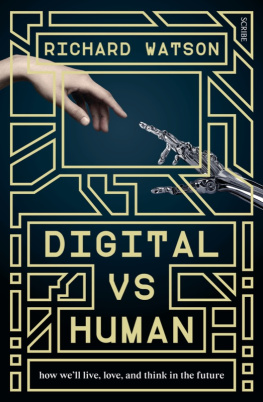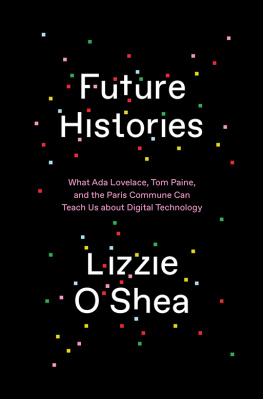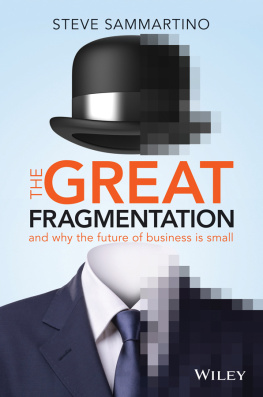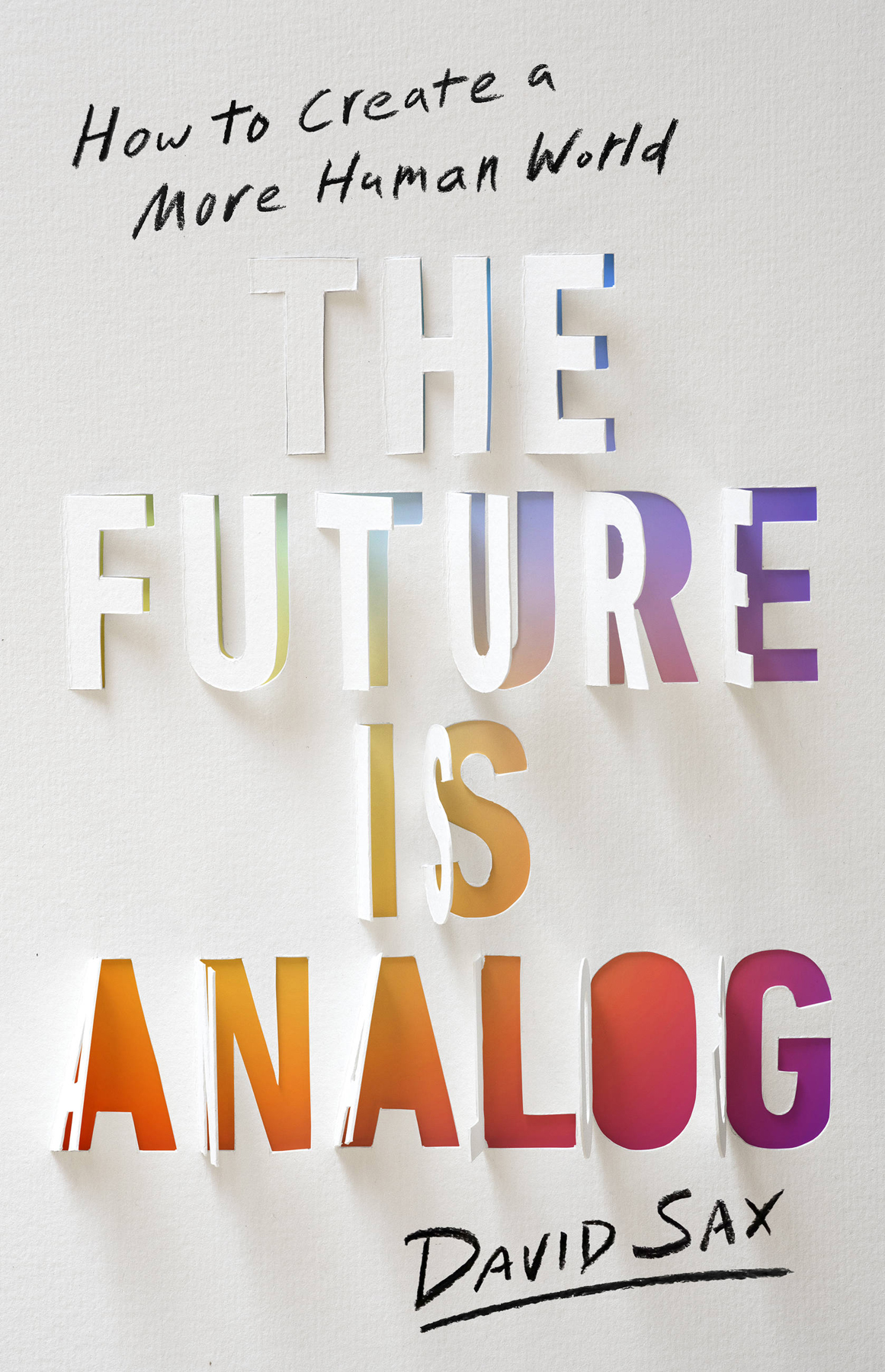The Soul of an Entrepreneur: Work and Life Beyond the Startup Myth
The Revenge of Analog: Real Things and Why They Matter
The Tastemakers: Why Were Crazy for Cupcakes but Fed Up with Fondue
Save the Deli: In Search of Perfect Pastrami, Crusty Rye, and the Heart of Jewish Delicatessen
Copyright 2022 by David Sax
Cover design by Pete Garceau
Cover copyright 2022 by Hachette Book Group, Inc.
Hachette Book Group supports the right to free expression and the value of copyright. The purpose of copyright is to encourage writers and artists to produce the creative works that enrich our culture.
The scanning, uploading, and distribution of this book without permission is a theft of the authors intellectual property. If you would like permission to use material from the book (other than for review purposes), please contact permissions@hbgusa.com. Thank you for your support of the authors rights.
PublicAffairs
Hachette Book Group
1290 Avenue of the Americas, New York, NY 10104
www.publicaffairsbooks.com
@Public_Affairs
First Edition: November 2022
Published by PublicAffairs, an imprint of Perseus Books, LLC, a subsidiary of Hachette Book Group, Inc. The PublicAffairs name and logo is a trademark of the Hachette Book Group.
The Hachette Speakers Bureau provides a wide range of authors for speaking events. To find out more, go to www.hachettespeakersbureau.com or call (866) 376-6591.
The publisher is not responsible for websites (or their content) that are not owned by the publisher.
Library of Congress Cataloging-in-Publication Data
Names: Sax, David, author.
Title: The future is analog : how to create a more human world / David Sax.
Description: First edition. | New York : PublicAffairs, 2022. | Includes bibliographical references.
Identifiers: LCCN 2022010887 | ISBN 9781541701557 (hardcover) | ISBN 9781541701571 (ebook)
Subjects: LCSH: TechnologySociological aspects. | TechnologySocial aspects.
Classification: LCC HM846 .S29 2022 | DDC 303.48/3dc23/eng/20220307
LC record available at https://lccn.loc.gov/2022010887
ISBNs: 9781541701557 (hardcover), 9781541701571 (ebook)
E3-20220928-JV-NF-ORI
To the wonderful teachers, staff, students, and parents at Charles G. Fraser Junior Public School, who give me hope for the future.
And for my Brotherhood of Bookishness, who weathered the long, dark winter with the hoosh-swilling esprit of Shackletons crew. May Fortunas wheel spin ever in our favor. (Forgive me for Roth.)
The Machine is much, but it is not everything. I see something like you in this plate, but I do not see you. I hear something like you through this telephone, but I do not hear you. That is why I want you to come. Pay me a visit, so that we can meet face to face, and talk about the hopes that are in my mind.
E. M. Forster, The Machine Stops, 1909
The future cannot be predicted, but futures can be invented.
Dennis Gabor, Nobel laureate, Inventing the Future , 1963
Out of Order? Fuck! Even in the future nothing works!
Dark Helmet, Spaceballs , 1987
A few years back I was invited to speak about my book The Revenge of Analog in South Korea, where it had become a national best seller, to my complete surprise. The conference was a costly gathering of business leaders from around Asia, focused on the latest emerging digital technologies and the strategies to deploy them in the future. Other speakers included the founders of groundbreaking artificial intelligence and robotics start-ups, brilliant professors of computer science, software magnates from all over the world, and even a cryptocurrency billionaire from a former Soviet republic who dressed in a comically maniacal outfit of black turtlenecks and velour blazers and publicly predicted the imminent end of fiat currency every time he opened his mouth.
After thirteen hours in the air, I emerged into the arrivals hall of Incheon International Airport, exhausted and rumpled, where a three-foot-tall security robot on wheels greeted me with a digital smile and said in a cheery voice, Welcome to Seoul. Please stick with your luggage. Suddenly I heard a commotion, looked up, and saw a TV news crew sprinting in my direction.
David Sax!!! David Sax!!! a reporter shouted excitedly, thrusting a microphone in my face as his cameraman bathed me in light. What do you think about the Fourth Industrial Revolution?? When is it going to arrive??
The fourth what? I bumbled, as I stared down the camera, completely paralyzed.
The Fourth Industrial Revolution! the reporter enthusiastically repeated. The convergence of AI and robotics and big data that will usher in our digital future!
Oh, I said, pausing for a second. Im more interested in the analog future.
It was a smart-assed answer. After all, hadnt I been flown here, to the worlds most proudly digital city, as the token voice of analog dissent?
The reporters face quickly adopted a look of genuine concern. But what do you mean, Mr. Sax? We know the future is digital. It has to be.
Of course it did.
The future meant digital . Computers. Microchips. Gadgets. Software. This was the future. Born in 1979, I have witnessed the dawn of every significant era of digital computings transformation of modern life, from home and office desktops to the rise of video games, the internet, smartphones, and the associated galaxy of hardware and software that now permeated seemingly every aspect of my existence. I remember the day we got our first PC, the drive home from the toy store with our new Nintendo Entertainment System, the rich wood-grain finish of the first car phone my dad had installed on his dashboard. I remember using Windows for the first time and the first alien pop, hiss, and static crackle of my teenage babysitters modem connecting over our phone line, as he fed half a dozen floppy disks into the beige Compaq to download Operation Wolf .
I was there at the dawn of it all: Email. AOL. ICQ. Ethernet. Skype. Cell phones. Napster. iPods. Blackberries. iPhones. iPads. The first MacBook I bought after I sold my first article. The first photo I took on a digital camera. The day I created a social media account. The moment I connected to the internet wirelessly, like magic. The first pixilated breast I saw on a computer screen ( Leisure Suit Larry behind Josh Dales bedroom door) I remember it all. I entered journalism in an era of paper and felt its rapid transformation into an online-first medium with every diminished paycheck and notice about another shuttered publication.
The promise of the digital future was powerfully simple: successive improvements in computer technology would consistently transform and improve every single aspect of life on earth as we knew it. Everything would become more powerful, easier, cleaner, more profitable, more connected, networked, and streamlined. You could carry the world in the palm of your hand, or on your wrist, or even in a chip in your brain.
The formula for imagining the digital future was simple. Take anything that you knew in the present and transform it with computers. Use the phrase The future of [blank] is digital and insert anything between the brackets: Business. School. Work. Publishing. Finance. Fashion. Food. Driving. Flying. Music. Film. Theater. Politics. Democracy. Fascism. War. Peace. Sex. Love. Families all digital. In every category, in every corner of the world, the digital future was inevitable. It was predestined. It was either our salvation or, if you feared the robot overlords of the Terminator and Matrix films, our doom. But there was no questioning it. If you were thinking about the future, digital was it.






